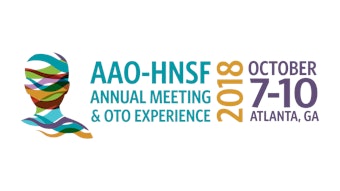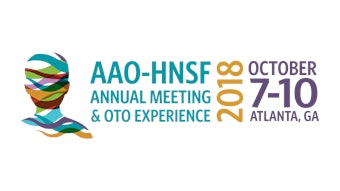Board of Governors: Building resilience with the BOG
Shawn Achor, happiness researcher and TED Talk presenter, wrote in the Harvard Business Review that a majority of American workers are “overly concerned about work, driven by an uncontrollable work motivation, and investing so much time and effort to work that it impairs other important life areas.” In order to combat this, he suggested that we need to focus on building resilience and that “resilience is about how you recharge, not how you endure.”
Resilience is a skill that can be developed and nurtured
Stacey L. Ishman, MD, MPH
BOG Immediate Past Chair; Professor of Otolaryngology,
Cincinnati Children’s Hospital Medical Center
 Stacey L. Ishman, MD, MPH
Stacey L. Ishman, MD, MPH
Other authors have noted that lack of recovery may be as simple as a poor night’s sleep, or nighttime rumination about work, or frequent nighttime awakenings during a busy call night.2 And, they note that there is a direct correlation between lack of recovery and an increased incidence of health and safety problems.
A Family Practice residency program created a program to build resilience through interactive conferences.3 These sessions focused on:
- building self-awareness
- coping skills
- time management
- self-care
- strengths and meaning in work
- connections within and outside medicine
One way that I have increased my connections and focused on the meaning of my work is through involvement with the Academy. And what is the easiest way to get involved with the Academy? Involvement in the Board of Governors (BOG)!
What is the BOG?
The BOG was established in 1982 as the grassroots member network within the Academy. It is made up of constituent societies—local, state, regional, and sister-specialty/national groups from around the United States and Canada—and serves as an avenue of communication between our members and the Board of Directors.
What do I do to get involved?
There are many ways you can get involved.
- Become an official representative to the BOG. Every constituent society has three representatives—a governor, a legislative affairs representative, and a socioeconomic and grassroots representative. Please check with your state society if you are interested in serving in one of those roles or check the website at www.entnet.org/content/board-governors to see who is representing you.
- Apply to a BOG Committee. We have three standing committees—Legislative Affairs, Socioeconomic & Grassroots, and Governance & Society Engagement.
- Become a Region Representative (http://www.entnet.org/content/bog-region-map)
- Become a State Legislative Tracker (http://www.entnet.org/content/state-legislative-advocacy)
- Just come to a meeting or get in touch with us (BOG@entnet.org). We are always looking for people who are interested in helping!
Where and when?
We will be meeting during the AAO-HNSF 2018 Annual Meeting & OTO Experience in Atlanta, Georgia, Saturday, October 6, from 1:30 – 4:30 pm (ET). This meeting always includes ample opportunities to network with BOG leadership.
We also hope you will attend our Panel Presentations:
- Board of Governors Hot Topics: Infection Control 2018; Safety, Sterility and Costs, Sunday, October 7, 3:45 – 4:45 pm (ET)
- Developing Professional Expertise: Plan, Publish, and Present, Monday, October 8, 8:45 – 9:45 am (ET)
I hope to see you there!
1. Achor S, Gielan M. (June 24, 2016). Resilience is about how you recharge, not how you endure. Harvard Business Review.
2. Wong AV, Olusanya A. Burnout and resilience in anesthesia and intensive care medicine. BJA Education 2017 Oct;17(10):2334-2340.
3. Brennan J, McGrady A. Designing and implementing a resiliency program for family medicine residents. Int J Psychiatry Med. 2015;50(1):104-114.











